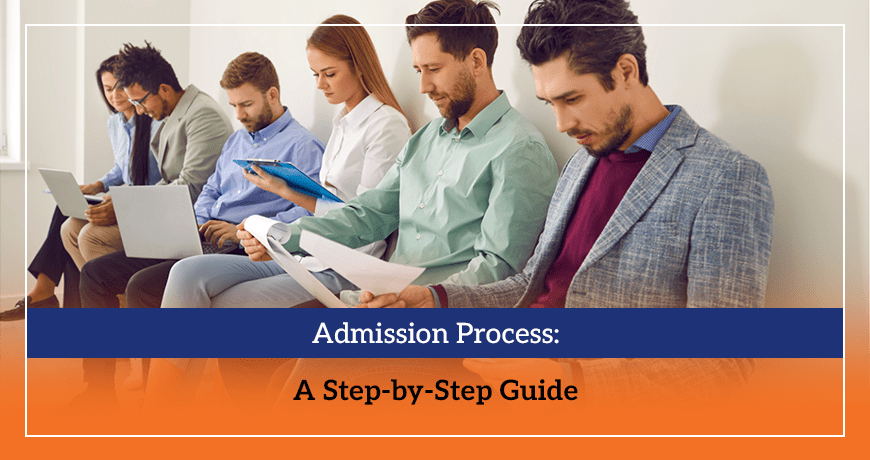Are you a UK student considering studying abroad? Australia offers incredible opportunities for academic growth and personal development. With world-class universities, a welcoming culture, and diverse career prospects, it has become a top choice for British students.
This guide will explore everything you need to know about studying in Australia from UK, from selecting universities to managing living costs. Whether you’re aiming for top-ranked institutions or seeking unique study experiences, Australia could be the perfect destination for your academic journey.
Why Choose Australia?
Australia offers top-tier education, an active lifestyle, and strong career opportunities. It combines academic quality with unique experiences for international students, making it an excellent choice for UK students.
Academic Excellence
Australia is home to globally recognised universities. Institutions such as the University of Melbourne, Australian National University, and the University of Sydney consistently rank among the world’s best. These universities provide many programs and emphasise practical learning and innovative research. Their modern facilities and experienced faculty help students gain skills needed for global careers.
Lifestyle Benefits
Australia provides a welcoming environment for students. Cities like Sydney, Melbourne, and Brisbane offer a mix of culture, nature, and social activities. Students can enjoy a balanced life outside the classroom, from beaches and national parks to art galleries and cafes. The warm climate and friendly communities make adjusting to life in Australia easier.
Career Opportunities
Australia’s strong economy supports international students in building careers. Many universities offer internships, work placements, and post-study work visas. These opportunities allow students to gain experience and establish industry connections. Fields like healthcare, engineering, and business are particularly well-suited for graduates seeking employment in Australia.
UK vs. Australia: Education and Lifestyle
Education System Comparison
The education systems in the UK and Australia differ in structure, teaching styles, and opportunities for practical experience. Here is a quick overview:
| Feature |
Australia |
UK |
| Course Duration |
Undergraduate degrees last 3-4 years, emphasising research and practical skills. |
Undergraduate degrees also take 3-4 years but focus more on theory and independence. |
| Teaching Methods |
Lectures, tutorials, and hands-on workshops are common. |
Lectures, tutorials, and independent study dominate the curriculum. |
| Assessment |
Exams, essays, group projects, and research-based assignments are typical. |
Exams, essays, and coursework are the main forms of assessment. |
| Internships and Work Placements |
Many programs integrate internships or work placements for real-world experience. |
Internships are available but often not included in the standard academic programs. |
Key Educational Differences
- Practical Learning: Australian universities often include internships and placements in their programs. These experiences prepare students for the workforce by applying academic knowledge in real-world settings. For example, engineering programs in Australia usually involve mandatory industry placements.
- Research Focus: UK universities often emphasise research, especially at the postgraduate level. This focus benefits students aiming for academic or specialised research careers.
Lifestyle Differences
The cultural and social aspects of studying in the UK and Australia also vary, affecting student life:
| Feature |
UK |
Australia |
| Social Life |
Known for pubs, clubs, and cultural activities. |
Outdoor activities, barbecues, and beach gatherings are popular. |
| Recreational Activities |
Students often enjoy visiting historical landmarks and museums. |
Students enjoy surfing, exploring national parks, and outdoor sports. |
| Climate |
Cooler and wetter weather throughout the year. |
Warm climate with plenty of sunshine, depending on the region. |
Adjusting to Life as a Student
- Weather Adaptation: UK students might find Australia's warmer climate refreshing, but should prepare for extreme heat in some areas.
- Social Interaction: Australians are known for their friendly, informal nature. Building connections can be easier with group activities or joining student clubs.
- Daily Life: Both countries offer excellent public transport and student discounts, but Australia’s vast distances between cities may require more planning.

10 Top Universities and Programs in Australia for UK Students
Australia hosts several highly-ranked universities that offer a variety of programs for international students. These institutions are recognised for their academic quality and practical learning opportunities. Below are some of the top universities and their standout programs:
1. University of Melbourne
- Offers strong programs in medicine, law, engineering, and the arts.
- Known for its research and teaching quality.
2. Australian National University (ANU)
- It specialises in science, social sciences, and the humanities.
- Renowned for its emphasis on innovation in research.
3. University of Sydney
- Provides diverse options, including business, law, and health sciences.
- One of the oldest and most established universities in Australia.
4. University of Queensland (UQ)
- Focuses on engineering, health sciences, and environmental research.
- Known for its partnerships with industry leaders.
5. University of New South Wales (UNSW)
- Excels in engineering, business, and science programs.
- Offers work-integrated learning opportunities.
6. Monash University
- Offers programs in medicine, business, and engineering.
- Recognised for its global presence and collaboration with industries.
7. University of Western Australia (UWA)
- Strong in agriculture, medicine, and environmental sciences.
- Located near significant natural and cultural landmarks.
8. University of Adelaide
- Focuses on law, medicine, and engineering.
- Notable for its research contributions and student support.
9. University of Tasmania
- Ideal for those seeking unique learning environments in natural settings.
- Offers specialised programs in environmental and marine sciences.
10. Macquarie University
- Known for business, psychology, and international studies.
- Encourages global perspectives through exchange programs.
Popular Fields of Study for UK Students
UK students often choose to study in Australia for programs in the following fields:
- Medicine: Australia's medical schools are highly regarded and offer world-class education and training.
- Engineering: The country's strong economy and focus on innovation create a great environment for engineering students.
- Business: Australian business schools offer a variety of programs, including finance, marketing, and management.
- Creative Arts: Australia's vibrant culture and arts scene make it an attractive destination for students interested in creative fields like design, music, and film.
Special Programs and Research Opportunities
Australian universities offer a variety of special programs and research opportunities that can enhance your study experience. Some of these include:
- Internships: Many universities offer programs that allow you to gain practical experience in your field of study.
- Research projects: Australian universities are involved in cutting-edge research, and students often have the opportunity to participate in research projects.
- Exchange programs: If you're interested in exploring different cultures, consider participating in an exchange program with another university.
- Dual degrees: Some universities offer dual degree programs that allow you to earn degrees from two different institutions.

How to Study in Australia from UK: Admission Process (Step-by-Step)
Step 1: Research Universities and Programs
- Identify your academic interests. Decide what subject or field you want to study.
- Search for universities in Australia offering programs in your chosen field.
- Check rankings, course details, and program content for each university.
- Pick a city or region based on your preferences, lifestyle, or budget.
Step 2: Prepare Application Documents
- Collect academic transcripts from your previous schools or universities.
- Take an English language test like IELTS or TOEFL and save the results.
- Write a personal statement. Explain your academic goals and why you want to study in Australia.
- Request recommendation letters from professors, teachers, or employers.
- Make digital copies of all documents for online submissions.
Step 3: Submit Applications
- Visit the university’s official website to check deadlines and requirements.
- Create an account on the application portal of your chosen university.
- Fill out the application form carefully and upload all required documents.
- Pay the application fee. Fees vary between universities, so confirm the amount beforehand.
- Submit your application before the deadline.
Step 4: Monitor Application Status
- Check your email regularly for updates on your application.
- Some universities may request interviews or additional documents. Respond promptly.
- If you receive multiple offers, compare them and choose the best fit for your goals.
Step 5: Finalise Enrollment
- Accept the offer from your chosen university by following the instructions in the admission email.
- Pay the deposit or enrollment fee to secure your spot.
- Review any required steps, such as signing agreements or providing health insurance details.
Admission Requirements at Top Universities
|
University
|
Academic Prerequisites
|
Documentation Needed
|
|
University of Melbourne
|
Bachelor's degree with a strong academic record
|
Personal statement, references, transcripts, and English proficiency test
|
|
Australian National University
|
Bachelor's degree with a strong academic record
|
Personal statement, references, transcripts, and English proficiency test
|
|
University of Sydney
|
Bachelor's degree with a strong academic record
|
Personal statement, references, transcripts, and English proficiency test
|
|
University of Queensland
|
Bachelor's degree with a strong academic record
|
Personal statement, references, transcripts, and English proficiency test
|
|
University of New South Wales
|
Bachelor's degree with a strong academic record
|
Personal statement, references, transcripts, and English proficiency test
|
Cost Breakdown
Understanding the financial aspects of studying in Australia is essential. Below is a clear breakdown of the expected expenses:
Tuition Fees
Tuition fees depend on the university and program:
- Undergraduate Programs: International students typically pay between AUD 20,000 and AUD 45,000 annually.
- Postgraduate Programs: Fees range from AUD 22,000 to AUD 50,000 annually.
For detailed tuition costs and university comparisons, visit Study Australia.
Living Expenses
Living costs vary by city and lifestyle. Here's an approximate monthly breakdown:
- Accommodation:
- Shared apartment: AUD 150 to AUD 350
- Private room: AUD 250 to AUD 500
- Studio apartment: AUD 400 to AUD 800
- Food: AUD 200 to AUD 300
- Transportation: AUD 100 to AUD 200
- Utilities (electricity, gas, internet): AUD 100 to AUD 200
- Miscellaneous (textbooks, entertainment, personal expenses): AUD 100 to AUD 200
On average, international students should budget AUD 1,400 to AUD 2,500 per month.
Scholarships and Financial Aid
Several scholarships are available to support international students:
- Australia Awards Scholarships: These cover tuition fees, living expenses, and airfare.
- University-Specific Scholarships: Many institutions offer scholarships based on academic merit or financial need.
Explore a comprehensive list of scholarship opportunities at Scholarships for International Students.
Tips for Managing Expenses
- Start Early: Research scholarships well before your intended start date.
- Prepare Strong Applications: Highlight your achievements and clearly state your academic goals.
- Create a Budget: Plan your expenses to ensure you have sufficient funds.
- Consider Part-Time Work: International students can work up to 40 hours per fortnight during study periods and unlimited hours during breaks. Learn about work rights at the Australian Government, and Study in Australia.
Part-Time Work and Networking Opportunities
Part-Time Work
International students in Australia can work up to 40 hours per fortnight during study periods and unlimited hours during semester breaks. This flexibility helps students support their living expenses while gaining valuable work experience. Common job opportunities include:
- Retail: Roles in shops, supermarkets, and department stores.
- Hospitality: Work in cafes, restaurants, or hotels.
- Tutoring: Providing academic assistance in specific subjects.
- Administrative Roles: Entry-level positions in offices or university departments.
Hourly wages range from AUD 20 to AUD 30, depending on the job and location. Most universities offer on-campus jobs, such as library assistants or event coordinators. To find work, check university job boards, online platforms, or community noticeboards.
Networking Opportunities
Building a professional network is crucial for career growth and job opportunities. Australian universities and cities provide many ways to connect with industry professionals and peers.
- University Events: Attend career fairs, workshops, and seminars organised by your institution. These events often feature industry experts and potential employers.
- Student Societies: Join academic and cultural societies to meet like-minded individuals and build meaningful connections.
- LinkedIn: Use this platform to connect with professionals in your field, share your academic achievements, and participate in industry discussions.
- Internships: Many courses include internships, giving you hands-on experience and direct access to professionals in your industry.
Tips for Success
- Prepare a Strong Resume: Highlight your skills and experiences. Tailor it to each job you apply for.
- Practice Professional Communication: Respond promptly and courteously to emails or job offers.
- Leverage University Resources: Use career services and attend networking events.

Visa and Immigration for UK Students in Australia
Student Visa Requirements for UK Students
To study in Australia, UK citizens need a valid student visa. Here is a simple guide to help you understand the process:
-
Eligibility Criteria
- You must have an offer of enrollment from an Australian educational institution.
- You must show proof of sufficient funds to cover tuition fees, living expenses, and travel.
- You must meet the English language proficiency requirements (usually proven with IELTS or TOEFL scores).
- You need health insurance, typically Overseas Student Health Cover (OSHC).
-
Documents Needed
- A passport with at least six months of validity.
- Confirmation of Enrollment (CoE) from your chosen institution.
- Proof of financial capacity (e.g., bank statements or scholarship letters).
- English language test results.
- Health examination records (if required).
- Character documents, such as police clearance certificates.
-
Visa Application Process
- Create an account on the Australian Immigration website.
- Complete the visa application form (Subclass 500 for students).
- Upload all required documents.
- Pay the visa application fee (AUD 630 as of now).
- Submit your application online.
-
Processing Time
- Most student visa applications take between 4 and 6 weeks to process. Apply as early as possible to avoid delays.
Working While Studying in Australia
International students can work part-time in Australia. Here are the main points to know:
- Work Hours: You can work up to 40 hours every two weeks during academic terms and unlimited hours during study breaks.
- Types of Jobs: Common roles include retail, hospitality, tutoring, and administrative positions. Many universities also offer on-campus jobs.
- Minimum Wage: The minimum wage in Australia is AUD 21.38 per hour (as of 2024), providing a good opportunity to support your living costs.
Tips for a Smooth Visa Process
- Apply Early: Start your application three months before your intended travel date.
- Keep Copies: Save electronic and hard copies of all your documents.
- Check Updates: Monitor the Australian Immigration website for any changes in visa policies.
- Seek Guidance: Consult your university’s international office or a certified migration agent if you feel overwhelmed.
Cultural and Lifestyle Differences
Adjusting to Life in Australia
Settling in Australia can be smooth with these tips:
- Greetings: Shake hands firmly and maintain eye contact.
- Social Life: Join outdoor activities like barbecues and sports to meet locals.
- Student Support: Use university counselling and clubs for help and connections.
- Transport: Rely on public transit; many offer student discounts.
- Banking: Open a local account for easier transactions.
- Health: Get Overseas Student Health Cover (OSHC).
- Shopping: Save on groceries at stores like Coles or Aldi.
Stay connected with your family, explore your surroundings, and enjoy your new journey.
Checklist for UK Students Moving to Australia
Before You Apply
- Research universities and programs.
- Check visa requirements and gather documents.
- Budget for tuition, living costs, and insurance.
- Prepare English proficiency test results if needed.
Before Departure
- Book accommodation near your university.
- Arrange flights and check baggage rules.
- Pack essentials, documents, and season-appropriate clothing.
- Purchase health insurance (OSHC).
- Open an Australian bank account.
After Arrival
- Attend university orientation.
- Settle into your accommodation and explore your area.
- Register with your university and local healthcare.
- Get a transport card and learn about public transit.
- Apply for a Tax File Number (TFN) if working.
Conclusion
Studying in Australia from UK can be a life-changing decision. Australia offers high-quality education, practical learning opportunities, and access to world-class universities. The country’s natural beauty, welcoming communities, and diverse culture create an ideal personal and academic growth environment.
UK students benefit from streamlined application processes, numerous scholarships, and the chance to gain valuable work experience while studying. The practical approach of Australian education equips graduates with highly sought-after skills in global industries.
Start planning your move by researching universities, preparing necessary documents, and exploring funding options. With the right preparation, you can make your study experience in Australia rewarding and unforgettable.